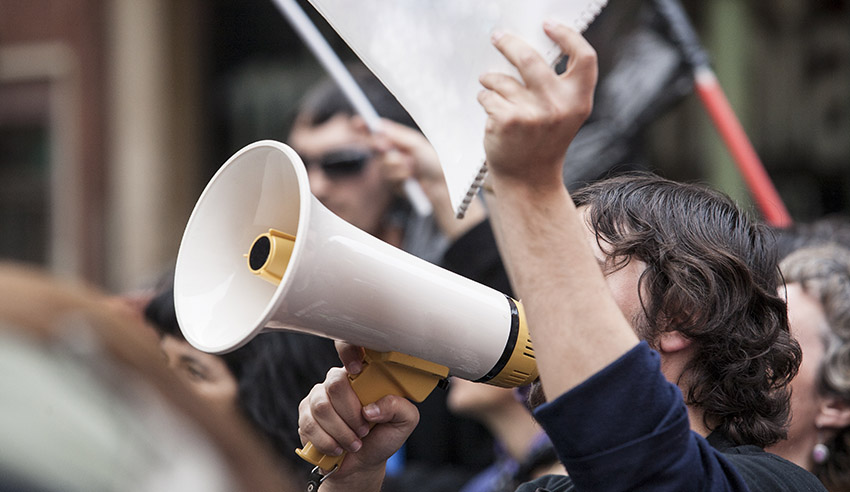Just over a week since Australians took to the streets to protest against mistreatment of women in and outside of workplaces, legal advocacy groups have had to rally to object to a proposed Tasmanian law that would prohibit certain protesting activities.

Just over a week since Australians took to the streets to protest against mistreatment of women in and outside of workplaces, legal advocacy groups have had to rally to object to a proposed Tasmanian law that would prohibit certain protesting activities.
A coalition of human rights, social justice, Aboriginal and environment organisations has called on the Tasmanian Parliament to vote against a “dangerously broad anti-protest” bill that would “undermine democracy and restrict people’s rights to come together and speak out on issues that they care about” moving forward.
Human Rights Law Centre (HRLC) legal director David Webb commented: “Whether it’s women’s rights, racial justice, the environment or gambling har, our ability to come together and speak out on things we care about is fundamental to democracy.
“These proposed laws are dangerously broad and unclear and would almost certainly end up back in the High Court. A law that could see people criminalised for handing out pamphlets on a footpath has no place in a free and democratic society.”
Under the broad definitions of the legislation, activists will be breaking the law if they obstruct the use or enjoyment of a “public thoroughfare” with the intent to “impede” a business activity, or to threaten certain protest action that would impede business.
It means that people could be penalised for standing on a footpath to hand out pamphlets on gambling harm, asking people to sign a petition criticising the treatment of elderly people in private aged-care facilities or making social media posts that encourage protest action against companies sexually harassing women.
Many of these activities were used at the #March4Justice protest on Monday, 15 March primarily against the government’s response to recent allegations in Parliament, but also against companies and other people linked to similar claims.
The coalition of legal and advocacy groups said that much of the conduct targeted with the new bill is already covered under existing laws and that the “extraordinary” overreach of the new bill would have a “chilling effect” on advocacy and protest across all issues. They are also concerned it will end up back before the High Court.Managing director Michael Bradley addressed the #March4Justice in Sydney today, commenting on how the system treats survivors and what the rule of law really means. Our journalist @NaomiMNeilson captured the below. #auslaw @marquelawyers pic.twitter.com/zmiN3cuvWC
— Lawyers Weekly (@LawyersWeekly) March 15, 2021
Community Legal Centres Tasmania chair Jane Hutchison said: “We are very concerned that this bill will have a chilling effect on the community’s right to protest. We strongly believe that the trespass laws already in place are appropriate to deal with unlawful entry onto workplaces.”
